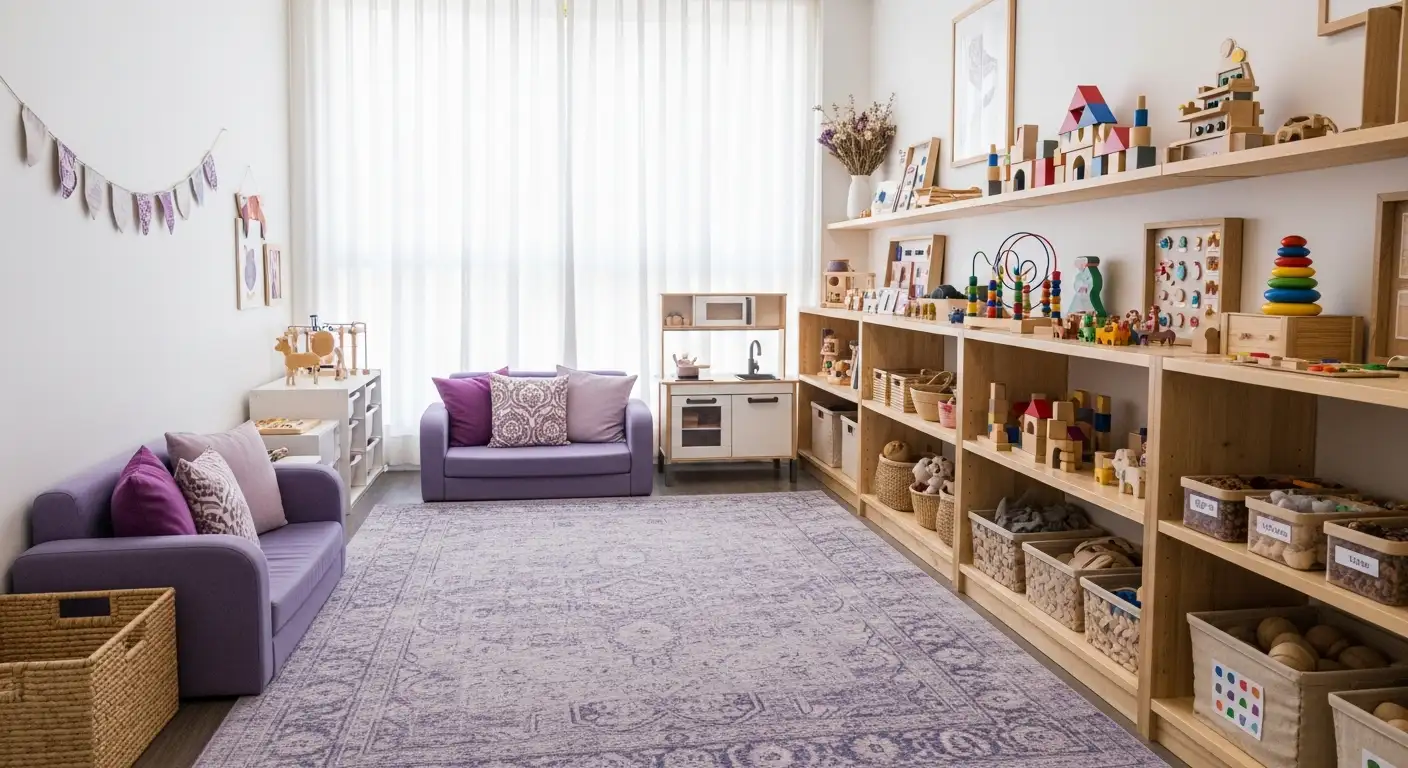Navigating Autism Spectrum Disorder in Arizona
Arizona Autism Resources provides a crucial hub for understanding ASD, accessing support services, and engaging with the community. Whether you're a parent, educator, or caregiver, this guide explores the signs, diagnosis, support organizations, advocacy efforts, and community events dedicated to individuals with autism across the state.
Recognizing the Signs and Symptoms of Autism Spectrum Disorder
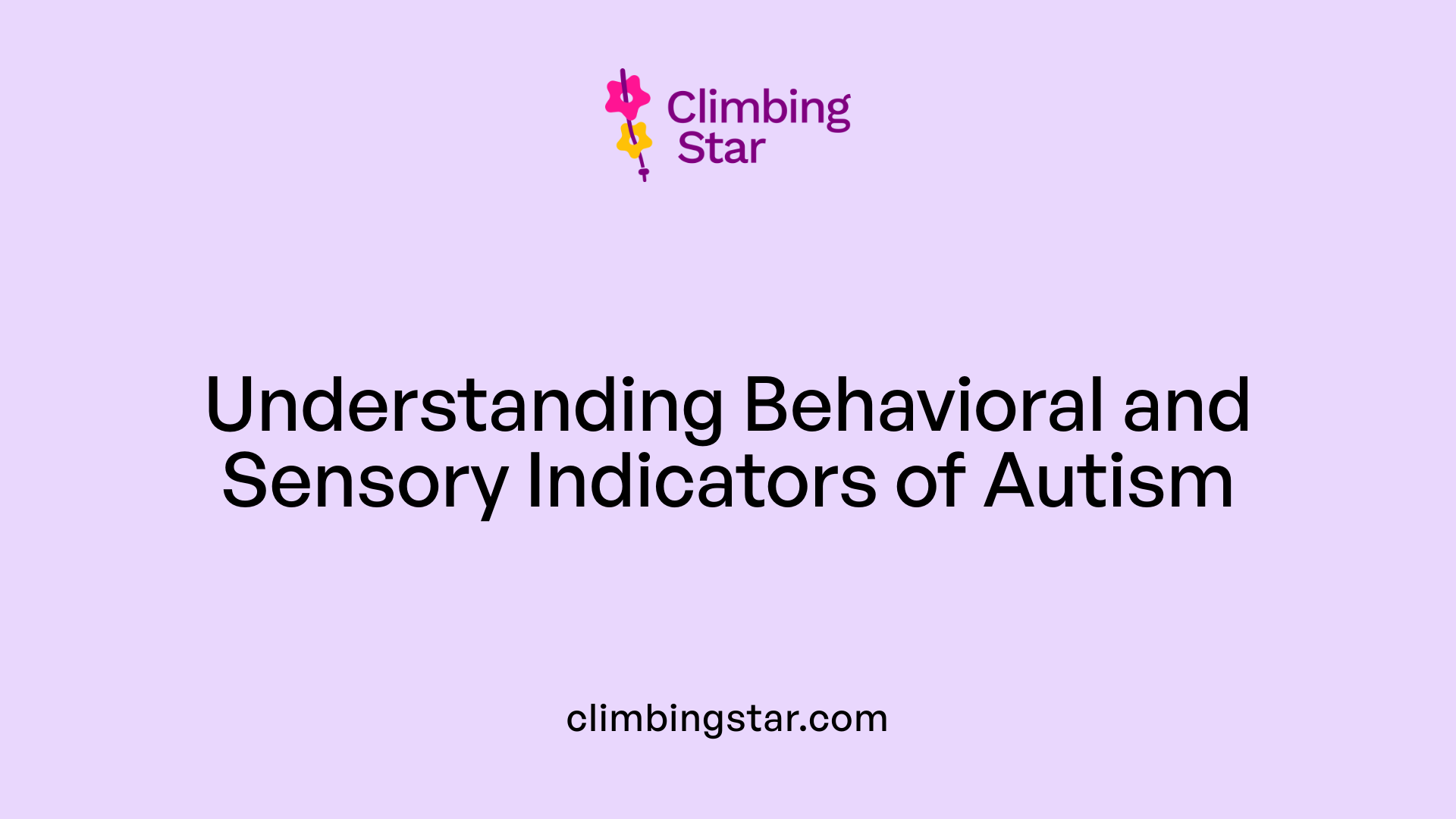
Early signs of ASD in children
Children with autism often show signs within the first few years of life. Some early indicators include a lack of response to their name by 9 months old, limited eye contact, and not pointing or showing objects to others by 18 months. These signs can also involve delays in speech and language development, making it harder for a child to communicate or learn through traditional methods.
Behavioral features of ASD
Autistic children may display behaviors such as repetitive movements like hand-flapping, rocking, or spinning. They might insist on routines and become distressed when routines are disrupted. Intense focus on specific interests or objects is common, and some children show difficulty in adapting to new situations or changes in their daily environment.
Sensory sensitivities
Many individuals with autism have strong sensory sensitivities. They might react unusually to sounds, textures, lights, or smells. For example, a child might cover their ears due to loud noises or avoid certain fabrics that feel uncomfortable. These sensitivities can significantly impact daily activities and social interactions.
Developmental delays
Beyond speech and language, children with ASD might experience delays in motor skills, such as crawling, walking, or coordination. Cognitive delays or differences are also common, affecting learning and problem-solving abilities.
Atypical emotional responses
Individuals with autism often show atypical emotional responses. They might have limited facial expressions or difficulty understanding and expressing feelings, which can affect social relationships. This emotional disconnect can persist into later childhood and adulthood, impacting social integration and communication.
| Signs and Symptoms | Description | Typical Age of Onset | Additional Notes |
|---|---|---|---|
| Lack of response to name | No reaction when called | By 9 months | Often one of the first signs noted |
| Limited eye contact | Avoids eye gaze | Early childhood | Affects social engagement |
| Repetitive behaviors | Hand-flapping, rocking | 1-3 years | Common in many with ASD |
| Insistence on routines | Gets upset with change | Toddlers | Can lead to rigidity |
| Sensory sensitivities | Overwhelmed by sounds or textures | Early childhood | Can lead to behaviors like covering ears |
| Developmental delays | Speech, motor skills | First years | Delays vary in severity |
| Emotional responses | Limited facial expressions | Throughout life | Impacts social interactions |
Understanding the Diagnosis of Autism Spectrum Disorder in Arizona
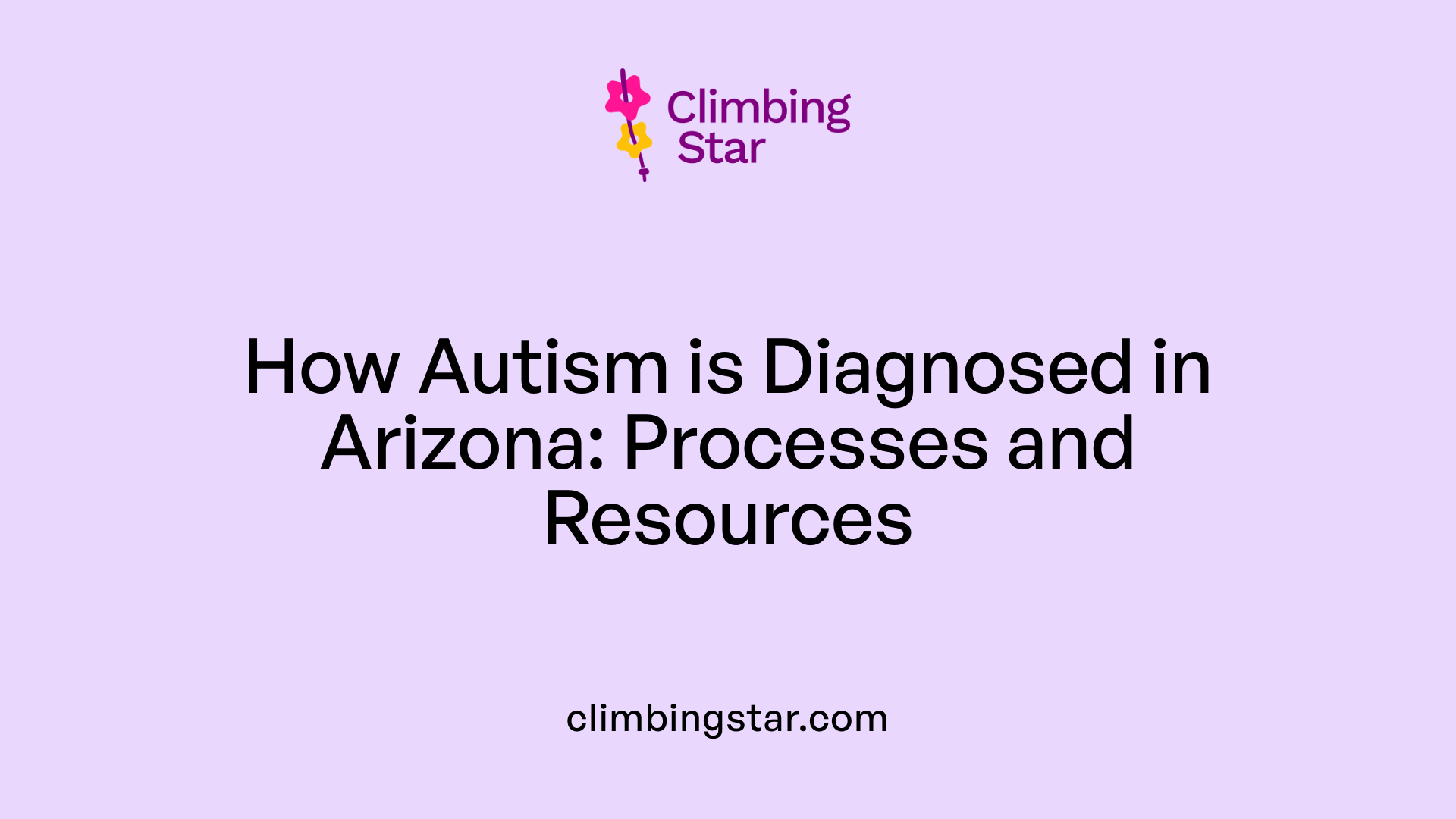
How is autism spectrum disorder diagnosed?
Autism spectrum disorder (ASD) identification in Arizona involves a careful process carried out by trained professionals. Typically, specialists such as developmental pediatricians, psychologists, or neurologists perform comprehensive assessments to confirm a diagnosis.
The process begins with collecting detailed developmental history from parents or caregivers. This includes early behaviors, communication patterns, social interactions, and developmental milestones. These insights help professionals understand the child's growth trajectory.
Observation plays a crucial role. Children are observed in different settings to see how they communicate, react to social cues, and engage with their environment. This multi-setting approach ensures a thorough understanding of behaviors that are characteristic of ASD.
Standardized tools such as the Autism Diagnostic Observation Schedule (ADOS-2) and the Autism Diagnostic Interview-Revised (ADI-R) support the diagnostic process. These assessments help quantify behaviors and provide consistent criteria to guide diagnosis.
The criteria used are based on the DSM-5, focusing on persistent deficits in social communication and interaction alongside restricted, repetitive behaviors. Importantly, signs must be evident from early childhood, even if they are not immediately apparent.
Early diagnosis is vital. It opens the door for prompt intervention, which can significantly improve developmental outcomes. Arizona provides resources through programs like IDEA and AZEIP that support early screening and intervention for at-risk children.
Making an accurate ASD diagnosis often involves a multidisciplinary team approach, ensuring all aspects of a child's development are considered. This collaborative effort helps tailor support plans that meet each child's unique needs.
Additional Resources in Arizona
- Arizona Department of Education offers evaluation and eligibility guidance for children in schools.
- SARRC and Raising Special Kids provide support and training for families navigating the diagnostic process.
- Local chapters of the Autism Society offer community-based resources and advocacy to assist families throughout the assessment journey.
Understanding the comprehensive nature of ASD diagnosis in Arizona helps families and caregivers seek timely help, paving the way for beneficial early interventions and ongoing support to improve quality of life for individuals with autism.
Support Services, Organizations, and Community Resources in Arizona
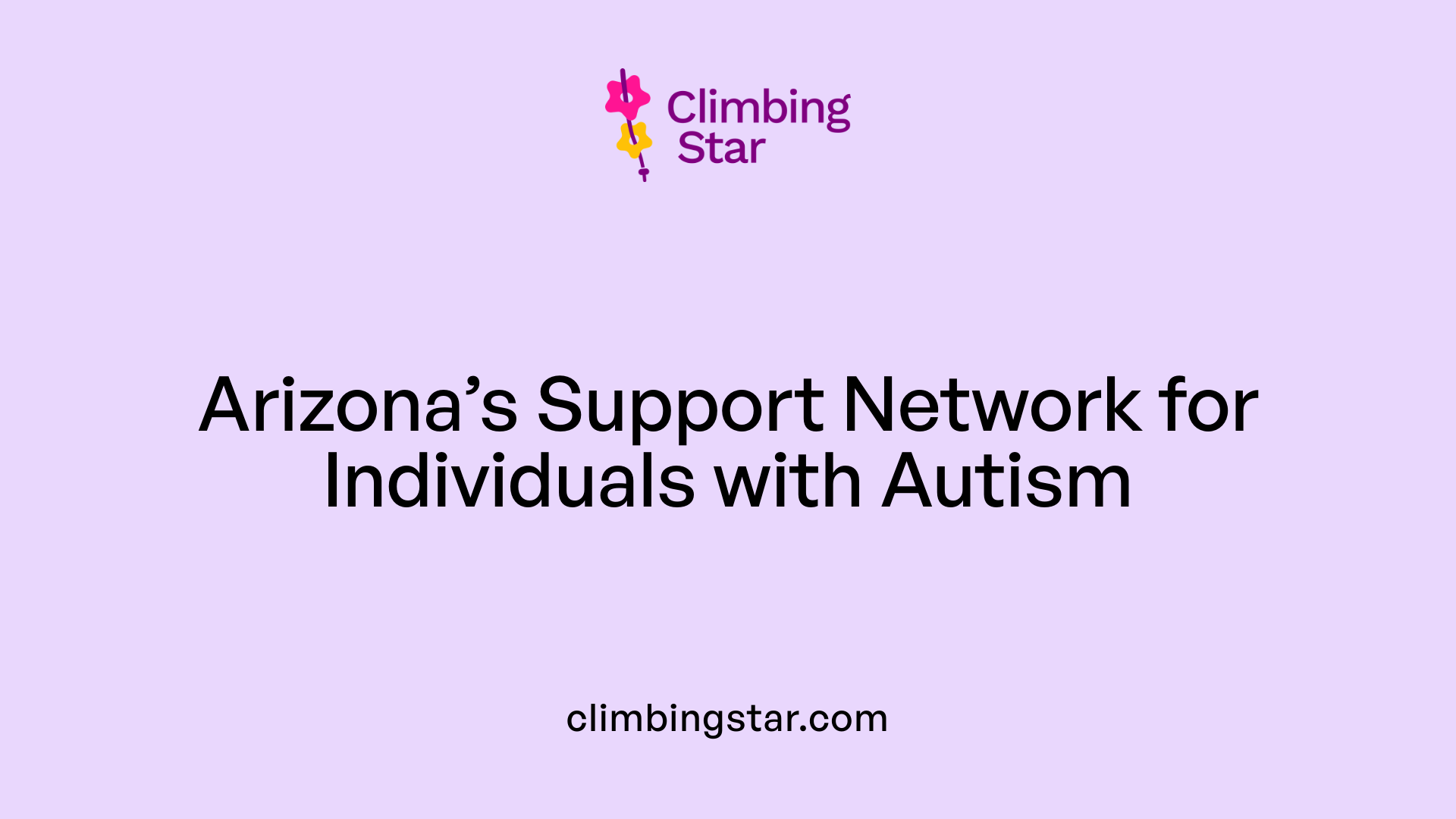
What support services and organizations are available for individuals with autism?
Arizona offers a range of organizations and support services dedicated to assisting individuals with autism and their families. The Autism Society of Greater Phoenix, established in 1973, is one of the oldest and most active groups in the state. It provides education, training, social events, and advocacy efforts, including campaigns like 'I Am' to promote autism awareness.
The Autism Society of Southern Arizona operates the Navigating Autism Program, tailoring resources and support based on individual needs. These organizations are part of the larger Autism Society of America network, which has over 70 affiliates nationwide and was honored as Affiliate of the Year for 2024.
Specialized groups such as the Arizona Autism Coalition work to improve systems and services through state-wide collaboration, hosting events such as the Autism Expo Resource Fair and providing up-to-date resources for families.
Community outreach is also supported by centers like the Southwest Autism Research & Resource Center (SARRC), focusing on research, education, and evidence-based treatments. Support programs like Raising Special Kids offer training and individual assistance to families navigating educational and healthcare systems.
In addition, national organizations like Autism Speaks contribute significantly through funding research, raising public awareness, and advocating for policy changes. Many organizations also support employment, caregiver training, and respite care to improve life quality.
Arizona's continuum of services reflects a comprehensive approach, connecting families to local organizations that provide tailored care, community engagement, and advocacy options.
Educational Resources and Support for Families, Educators, and Caregivers
Arizona offers a comprehensive range of educational and support resources designed to assist families, caregivers, and educators of individuals with autism. State agencies and local organizations collaborate to provide services that promote early diagnosis, effective intervention, and educational success.
One primary resource is the Arizona Department of Education, which offers detailed information about autism spectrum disorder (ASD), including characteristics, eligibility for special education, and the evaluation process. Schools are required to provide educational services through the Individuals with Disabilities Education Act (IDEA), ensuring children with autism receive free, appropriate public education. This includes individualized education programs (IEPs), special classroom placements, and related therapies.
For educators, numerous training programs and evidence-based practices are available to improve teaching strategies for students with autism. The department promotes professional development through web-based modules and statewide projects such as AzSAP, which focus on effective instructional methods and inclusive classroom environments.
Families and caregivers can access various support programs and resources through organizations like the Autism Society of Greater Phoenix and the Southwest Autism Research & Resource Center (SARRC). These organizations provide parent training, support groups, and community engagement activities aimed at empowering families. Support services also include developmental screening, diagnosis assistance, and tailored community programs like the Autism Society's social groups and the Navigating Autism Program.
Legal rights and advocacy are crucial components, with organizations such as Wrights Law and the Autism Society guiding families through educational rights, legal advocacy, and policy changes affecting autism services. The Arizona Autism Coalition and local chapters of the Autism Society of America actively work towards autism systems reform, fostering collaboration across agencies and communities.
In addition to local services, national organizations such as Autism Speaks and the Autism Community in Action advocate for increased research funding, awareness, and policy development to improve life quality for individuals with autism.
| Resource Type | Service/Program | Target Audience | Additional Notes |
|---|---|---|---|
| Educational | AZ Department of Education ASD info | Educators, families | Includes evaluation guides and training materials |
| Support Groups | Autism Society Chapters | Families, caregivers | Local chapters in Greater Phoenix, Northern, and Southern Arizona |
| Community Programs | SARRC Autism Initiatives | Individuals, families | Focus on research, education, and outreach |
| Advocacy & Rights | Wrights Law, Autism Society | Families, advocates | Help navigate educational law and policy |
| Early Intervention | AZEIP, IDEA services | Children under 3 | Focus on developmental delays and autism detection |
| Training & Resources | AzSAP, Autism Navigator | Educators, professionals | Evidence-based practices and skill-building tools |
Arizona's multifaceted approach aims to provide comprehensive educational and community support, emphasizing early intervention, legal advocacy, and professional training to enhance opportunities and quality of life for individuals with autism and their families.
Community Engagement, Events, and Advocacy Initiatives
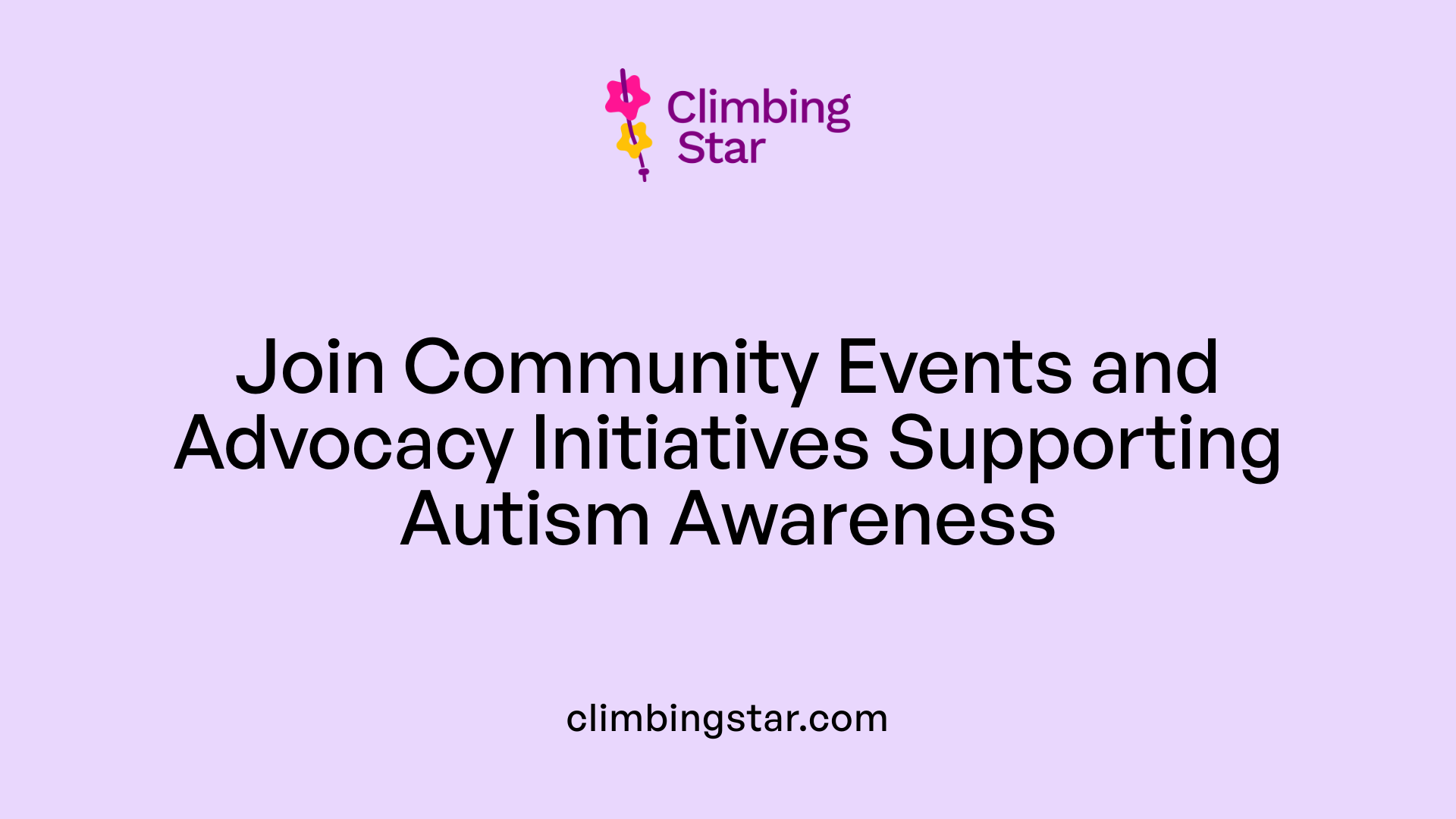
Are there community events or initiatives that support individuals with autism?
Yes, numerous community events and initiatives in Arizona aim to support individuals affected by autism. Organizations such as Autism Speaks and the Autism Society of America actively promote autism awareness through a variety of events.
These include local walks, fun runs, and sensory-friendly activities designed to foster inclusion and community participation. Autism advocacy groups also organize conferences, support groups, and educational programs to provide resources and build understanding.
Special observances like World Autism Month feature activities such as Light It Up Blue, which encourages buildings, landmarks, and homes to light up in blue as a symbol of awareness and acceptance.
In addition, the Autism Society of Southern Arizona offers social events, training, and community engagement programs tailored for children, teens, and adults with autism and their families.
Community-led initiatives support a more accepting environment and help connect families with local resources, ultimately enhancing the quality of life and integration of autistic individuals into society.
How do awareness and fundraising campaigns support autism communities?
Campaigns targeted at raising awareness and funds play a vital role in expanding services, research, and community understanding.
Events such as charity walks, awareness drives, and online fundraisers serve dual purposes: they educate the public about autism and generate resources for local programs, research projects, and support services.
Organizations like the Autism Society and Autism Speaks leverage these campaigns to advocate for policy changes and increase access to crucial services.
Through increased media coverage and public participation, these efforts aim to foster acceptance, reduce stigma, and build inclusive environments for everyone affected by autism.
What autism-friendly activities and sensory events are available in Arizona?
Arizona hosts several sensory-friendly events and activities designed for autistic individuals and their families. These include adapted movies, sensory Santa visits during holidays, and calm zones at community fairs.
Such activities minimize sensory overload and provide safe spaces to enjoy public events without stress. The Southwest Autism Research & Resource Center (SARRC) and similar organizations also organize tailored workshops, social outings, and activity days.
These events help participants build social skills, develop friendships, and enjoy community life in an accommodating setting.
Are there specific days or months dedicated to autism awareness?
Yes, World Autism Month in April is a prominent observance supported by numerous Arizona-based organizations. During this month, activities like lightings, educational workshops, and community gatherings aim to increase awareness and acceptance.
Additionally, some groups organize local events such as the Autism Expo or the Day of Learning Series, providing platforms for advocacy, information sharing, and community building.
How can community members get involved through volunteering or advocacy?
Community members interested in supporting autism initiatives can volunteer at local events, support fundraising campaigns, or participate in advocacy efforts.
Organizations like the Arizona Autism Coalition and the Southwest Autism Research & Resource Center welcome volunteers to help organize events, assist families, or advocate for policy reforms.
Volunteering not only benefits the community but also helps build awareness and fosters a more inclusive society.
| Activity Type | Examples | Benefits |
|---|---|---|
| Community Events | Walks, sensory-friendly sessions, expos | Greater awareness, social inclusion, community bonding |
| Fundraising Campaigns | Walks, online drives, donor events | Funding for local programs, research, and services |
| Sensory and Autism-friendly | Movie nights, calm zones, sensory outings | Improved community engagement for autistic individuals |
| Awareness Observances | World Autism Month activities, Light It Up Blue | Public education, stigma reduction |
| Volunteer Opportunities | Event support, community outreach, advocacy | Empowerment, community strength, advocacy growth |
Involvement in these activities helps foster an inclusive environment where individuals with autism and their families feel supported and understood.
Empowering the Autism Community in Arizona
Arizona provides a wealth of resources, support networks, and community initiatives dedicated to improving the lives of individuals with autism and their families. Through dedicated organizations, advocacy, early diagnosis support, and community engagement, individuals affected by ASD can access the resources they need for a fulfilling and inclusive life. Continued efforts in research, education, and community involvement promise a brighter future for the autism community across Arizona.
References
- Autism Resources
- Autism Society of Greater Phoenix
- Resources for Members with Autism Spectrum Disorder ...
- Autism Society of Southern Arizona: Home
- Autism | Arizona Department of Education
- Community Resources for Parents, Family Members and ...
- Arizona Autism Coalition | Building An Integrated Community ...
- Resources - ASCEND
- Autism Speaks: Autism support, resources & advocacy
- Private and Non-Profit Autism Organizations | IACC

